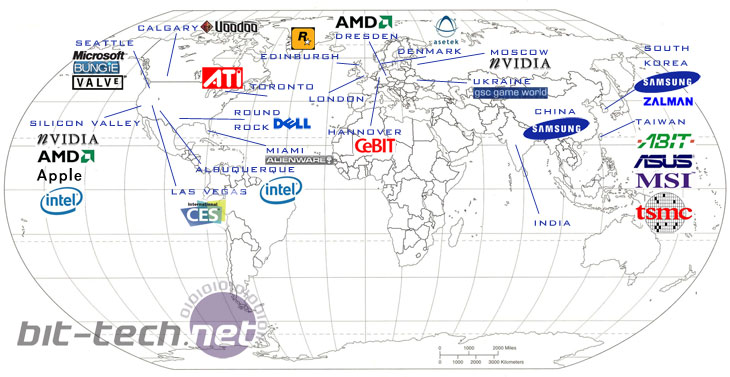
The next big thing: India
Right now you might not think of India as being somewhere that's particularly at the forefront of technological development. But in just a few years, it could well be the new Silicon Valley.When the dot-com bubble burst, a lot of American high-tech companies were under pressure to save money by any means possible. At the same time, the economics of the world mean that workers in India are far cheaper to employ than workers in the US. The combined result? Many jobs previously done by American workers are now being given to so-called 'Outsourcing' firms in other countries. India in particular has benefited, due to the large pool of English speakers, a throwback to the British empire.
Companies like BT and Hewlett Packard have saved millions of dollars by outsourcing facilities such as technical support and phone sales to India. One of the primary benefactors of this has been Bangalore, the capital city of Karnataka. Recently dubbed the 'Silicon Valley of India', it is home to Electronics City, an industrial park spread across 1.3km squared. Companies including Intel, Yahoo!, IBM, Dell, Sun and Motorola all have offices there.
India is training an increasing number of technology and electronics graduates, and it is swiftly becoming the case that the workforce is more skilled than many developed countries. Indeed, as well as basic facilities like sales and support, there are increasing numbers of other departments headed out to India too, with programming and electronics design being two of the major sectors. Indian programmers work for roughly 1/6th of their American counterparts, and so the cost efficiency is easy to see.
Of course, not everyone is happy about India's growth as a technological player. Many workers forced to train their replacements in another country have been left with a bitter taste in their mouths, and John Kerry, the failed US Presidential candidate, described CEOs who offshore their workers as 'unpatriotic'. Since HP sacked its CEO, one of the major proponents of outsourcing has left the industry, but there seems to be little general doubt that the practice is here to stay, virtually guaranteeing India a fast-track into economic prosperity.
So where, exactly?
Just to wrap this all up, here's a handy little map we've put together of some of the people we've been talking about. Just click the picture for the big version.
MSI MPG Velox 100R Chassis Review
October 14 2021 | 15:04









Want to comment? Please log in.